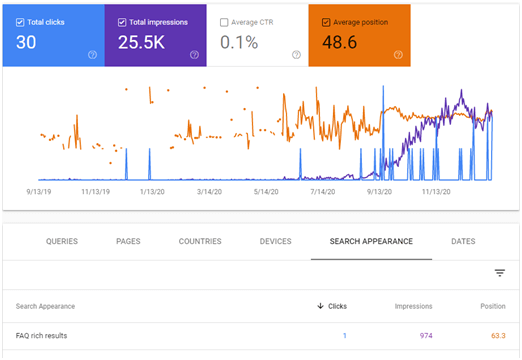The Challenge
Before Obility became involved there were many glossary pages targeting high competition keywords in the machine learning and AI categories. Because of the high competition, these keywords are difficult to rank for and acquire organic traffic.
Objectives
- Increase ranking and therefore impressions and clicks for machine learning and AI related keywords within the glossary
The Solution
Each glossary page has a very similar format. The first heading is a “what is” question, and the next heading is a “why” question. This QA format is ideal for implementing FAQpage schema.
What is Schema?
Schema is structured data that describes semantic relationships between content on a webpage based on Schema.org guidelines. Google has identified several types of schema that they use for creating search features, one of which is FAQpage schema. In Google’s developer documentation on schema, it states:
A Frequently Asked Question (FAQ) page contains a list of questions and answers pertaining to a particular topic. Properly marked up FAQ pages may be eligible to have a rich result on Search and an Action on the Google Assistant, which can help your site reach the right users. Here’s an example of an FAQ rich result:
How we did it
Obility recommended that Arm test out FAQpage schema on a subset of pages within their glossary. The idea is that by utilizing this schema, it would make it easier for Google’s spider to parse the content on the glossary pages and thereby unlocking the FAQ search feature for these pages. Having a FAQ search feature like the one above increases the “real estate” on the SERP, and can increase click-through-rate (CTR) since the search listing is more prominent than others around it.
Implementation
To implement FAQpage schema, Obility created schema script in JSON-LD
JSON-LD Script for FAQpage Schema
The JSON-LD script was written in accordance with Google’s guidelines. Here is an example:
<script type="application/ld+json">
{
"@context": "https://schema.org",
"@type": "FAQPage",
"mainEntity": [{
"@type": "Question",
"name": "What Is Machine Learning?",
"acceptedAnswer": {
"@type": "Answer",
"text": "<a href=https://www.arm.com/solutions/artificial-intelligence?&utm_source=google&utm_medium=organic&utm_campaign=faq-snippet&utm_term=machine-learning>Machine learning</a> (ML) is a method of data analysis—and a type of artificial intelligence—that automates analytical model building, based on the idea that systems can learn from data, identify patterns, and make decisions with little human intervention. With ML, users input large amounts of data into an algorithm, which enables the computer to make recommendations and decisions based on that data. ML features are found in smartphones and smart devices in the form of , including features like predictive text, speech recognition, computational photography, and so on. ML gives smart devices the ability to become more and more intuitive and proactive. Because ML relies on massive amounts of data, it is most often associated with intelligent devices within the Internet of Things (IoT)."
}
}, {
"@type": "Question",
"name": "Why Machine Learning?",
"acceptedAnswer": {
"@type": "Answer",
"text": "Machine learning enables companies to make better, more informed, nimbler decisions based on real-time data. Data-driven decisions help companies open new successful lines of business and optimize current operations. Machine learning has applications across industries, from manufacturing and retail to healthcare to financial services to energy and utilities. It supports predictive maintenance, upselling and cross-channel marketing, disease identification, dynamic pricing, risk analytics, supply optimization, and more. "
}
}
]
}
</script>
Publishing the Script
The script was inserted into the <head> section of each page’s html by Arm developers.
The Results
After publishing the FAQpage Schema, these pages unlocked the FAQ search feature on many queries. There was also a noticeable improvement in impressions, clicks, and ranking position.
| Change within 4 Months | ||||
| URL | Clicks Change | Impressions Change | CTR Change | Avg. Ranking Position Change |
| https://www.arm.com/glossary/machine-learning | 733.33% | 2543.55% | -66.67% | -21.70% |
| https://www.arm.com/glossary/natural-language-processing | 2400.00% | 2976.92% | 0.00% | -2.36% |
| https://www.arm.com/glossary/pattern-recognition | 443.75% | 151.15% | 150.00% | -44.32% |
| https://www.arm.com/glossary/recurrent-neural-network | 71.83% | 40.80% | 16.67% | -13.01% |
| Total Average | 192.31% | 334.11% | 25.00% | -19.47% |
Machine Learning

Conclusion
Obility’s hypothesis that utilizing FAQpage schema on these pages would unlock the FAQ featured snippet and improve search performance of target keywords was confirmed. With the successful test finished on a small subset of Glossary pages, it is recommended that FAQpage schema be rolled out to the rest of the glossary pages.
About ARM
Arm technology is at the heart of a computing and data revolution that is transforming the way people live and businesses operate. Our energy-efficient processor designs and software platforms have enabled advanced computing in 180 billion chips and our technologies securely power products from the sensor to the smartphone and the supercomputer. Together with 1,000+ technology partners we are at the forefront of designing, securing and managing all areas of AI-enhanced connected compute from the chip to the cloud. Visit ARM.
About Obility
We have one purpose: help B2B companies generate demand and increase revenue through online marketing.Located in Portland, Oregon and founded in early 2011, we’re a fast-growing agency with a global client base ranging from early stage start-ups to multinational enterprises. Our focus is on B2B companies and we’re proud that our growth has been due primarily to client referrals.
